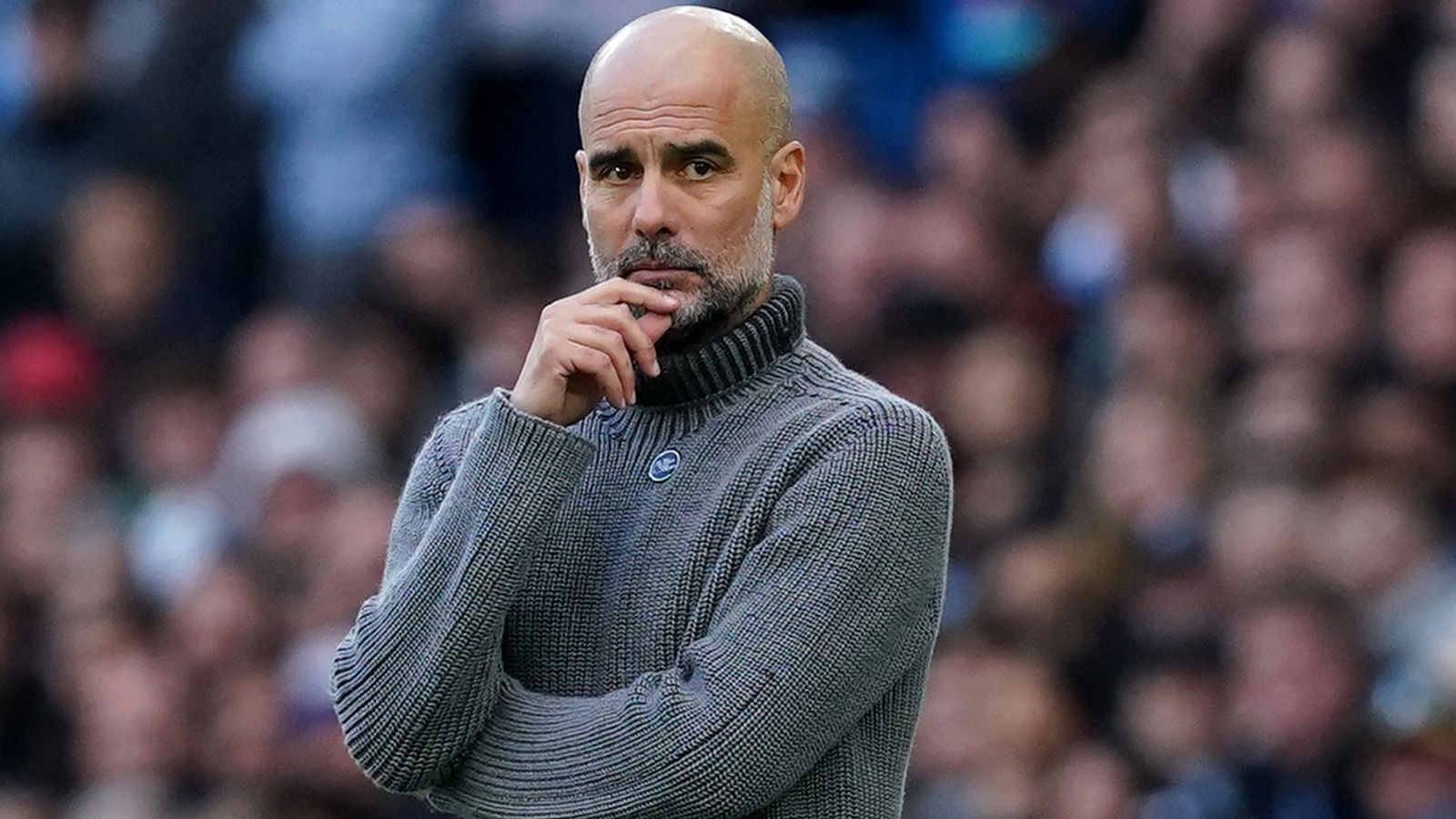

Manchester City manager Pep Guardiola has once again made headlines with his brutally honest take on the state of his team, admitting that his squad size has become “unhealthy” and openly calling for more departures before the transfer window shuts. In a candid revelation that has stirred discussions across the football world, the Catalan tactician explained that his current roster is bloated, difficult to manage, and risks creating dissatisfaction among players who may not get the playing time they crave. For a coach known for his obsession with fine details, tactical precision, and team harmony, Guardiola’s admission is both striking and reflective of his relentless drive for perfection.
The Premier League champions, who are gunning for yet another title while also defending their European crown, are renowned for their depth and quality across every position. But Guardiola believes that too much of a good thing has now tipped into the territory of excess. The City boss confessed that the large number of players at his disposal not only complicates squad rotation but also undermines the delicate balance of unity within the camp. “I want more players to leave,” Guardiola admitted with characteristic bluntness, noting that a leaner, more manageable squad would make his job significantly easier while keeping competition healthy without festering discontent.
Guardiola’s comments may surprise some, especially at a time when many managers complain about not having enough options to deal with the rigors of modern football. With the English domestic season stacked with league matches, FA Cup and Carabao Cup ties, plus grueling Champions League fixtures, most managers beg for depth. But Guardiola, who has built his legacy on controlling every variable, is wary of what an oversized squad means for motivation and mental stability. In his eyes, a bloated dressing room breeds frustration for those who find themselves marginalized, which in turn can destabilize the atmosphere he so carefully curates at Manchester City.
City’s depth has long been admired, with fans often praising the fact that even their “second team” could compete with top sides in Europe. But for Guardiola, this abundance comes with hidden dangers. Managing egos, ensuring fair chances, and keeping morale high when world-class players are left out of matchday squads is a delicate balancing act. For example, the likes of Kalvin Phillips last season hardly featured, sparking debates about whether City’s squad was too big to fairly distribute minutes. Now, with new arrivals blending with established stars, Guardiola is signaling that he does not want the same problem repeating itself.
Behind Guardiola’s remarks also lies a deeper truth about his coaching philosophy. The Catalan has never been a fan of unnecessarily large squads. At Barcelona, he maintained a relatively small but highly competitive group, preferring quality over quantity. At Bayern Munich, he was similarly known to streamline his options, often trusting a core group of players while keeping youngsters ready to step in if needed. At City, where the club’s financial muscle and recruitment machine provide him with a constant influx of elite talent, he seems to be drawing a line. Guardiola knows that balance is as important as brilliance, and an excess of players could ruin that equilibrium.
The statement also puts a spotlight on potential exits from the Etihad. With Guardiola openly calling for departures, speculation is already swirling around which players may be allowed or even encouraged to leave. Fringe players who struggled for minutes last season are the most obvious candidates, but even established names could be at risk if Guardiola feels they no longer fit his vision. This transparency from the coach may also serve as a subtle nudge to the club’s hierarchy, signaling that the time has come to trim the fat rather than accumulate more star names.
For the players, the message is clear: at Manchester City, no one is guaranteed a spot if the manager feels the squad is too crowded. Guardiola’s demand for exits is also a statement of intent to maintain sharpness and competitive edge within the team. A smaller squad, in his view, ensures that every player knows their role, contributes significantly, and avoids the resentment that comes from being a peripheral figure. It’s a ruthless approach, but Guardiola has built his career on making tough calls in the pursuit of footballing excellence.
The timing of his comments also coincides with growing conversations around player welfare. Ironically, many clubs and managers demand more squad depth to handle congested fixtures, but Guardiola is flipping the script. He argues that an oversized squad creates more problems than solutions. His belief is that with too many players, not only is game time an issue, but the training intensity can drop if individuals feel undervalued. Guardiola thrives on competition in training sessions and needs every player pushing for a place, not sulking on the sidelines.
Fans of rival clubs may find his words almost arrogant, as most teams envy City’s resources and options. But Guardiola has never been shy about expressing his principles. To him, success is not just about signing the best players but about crafting the perfect environment where each individual contributes to a collective goal. Having extra stars on the bench may look like a luxury, but for Guardiola, it can be a ticking time bomb. He values commitment, harmony, and adaptability over sheer numbers.
What happens next will be fascinating. The transfer market is unpredictable, and while Guardiola may want exits, the reality of moving players depends on suitors, valuations, and the players’ willingness to leave. Some may resist a move, preferring to fight for their place at a club where trophies are almost guaranteed. Others may see this as the perfect opportunity to seek regular playing time elsewhere. Regardless of who stays or goes, Guardiola has made it clear that his ideal scenario involves a trimmer squad that he can fully control without the baggage of discontent.
His comments will also serve as a warning to younger players trying to break into the first team. Guardiola has a history of giving academy graduates opportunities, but if the squad remains packed, those chances will be scarce. For the City academy, renowned as one of the best in England, this could pose challenges in terms of pathway to the senior team unless exits are secured to free up space. In that sense, Guardiola’s desire for a leaner squad also indirectly benefits the development of homegrown talents.
Ultimately, Guardiola’s stance reflects the high standards he sets for himself and his team. While most managers worry about shortages, he worries about excess. In a world where football is increasingly dominated by bloated squads and expensive benches, Guardiola is pushing back against the trend, insisting that simplicity, balance, and sharp competition are the keys to maintaining Manchester City’s dominance. His comments may not sit well with everyone, especially those players who fear being pushed out, but they underline once again why he is one of the most demanding managers in world football. For Guardiola, the pursuit of perfection leaves no room for complacency—or for an unhealthy squad size.


